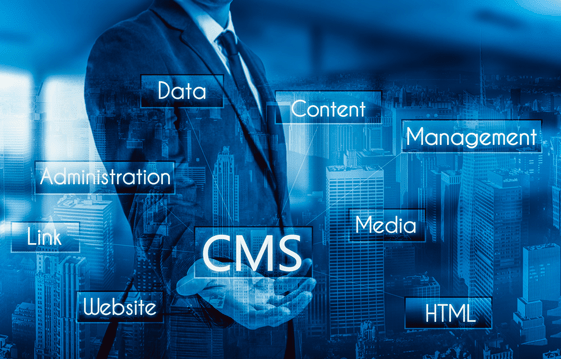The Power of a CMS: How It Can Transform Your Business
A Content Management System (CMS) is essential for creating and maintaining a modern website. Whether you're managing a blog, an online store, or a corporate platform, a CMS allows you to handle digital content efficiently—without needing advanced technical knowledge.
This guide outlines what a CMS is, how it works, the benefits it offers to businesses, and why it’s a vital tool in today’s digital environment.
What Does a CMS Do?
A CMS simplifies the process of building and updating websites. From adding text and images to publishing entire web pages, everything is managed through a central interface. At its core, a CMS helps businesses maintain informative, engaging, and scalable websites with minimal friction.
Key Features of a CMS
-
User-Friendly Editor
Most CMS platforms provide a visual editor similar to word processors. This makes content creation intuitive—even for non-technical users. -
Content Storage and Organization
Digital assets (text, images, files) are stored in a structured, searchable format. Tagging and categorization features improve accessibility and efficiency. -
Customizable Templates
Built-in design templates help you manage layout and visual consistency across the website, with the flexibility to personalize based on your brand identity. -
User Management
You can assign different roles and permissions to your team—editors, publishers, admins—ensuring content control and security. -
SEO Tools
Built-in SEO capabilities help you optimize URLs, meta tags, images, and other elements critical to ranking higher on search engines. -
Third-Party Integration
Modern CMS platforms integrate with analytics tools, marketing platforms, e-commerce systems, and even AI-driven technologies for automation and personalization.
How a CMS Works
-
Content Creation
Create and format content directly in the CMS—no coding required. -
Centralized Storage
All content is stored in a database, making it easy to retrieve, update, or repurpose. -
Organization and Navigation
Categorize content using tags, menus, and structured layouts for better user navigation. -
Publishing and Scheduling
Publish immediately or schedule content in advance. Approval workflows ensure content is reviewed before going live.
Benefits of a CMS for Businesses
-
Faster Time-to-Market: Quickly launch new pages, blog posts, or campaigns without developer delays.
-
Cost Efficiency: Reduce dependency on IT staff for day-to-day updates and content changes.
-
Brand Consistency: Manage layout and tone across all pages using reusable templates and content blocks.
-
Collaboration-Friendly: Enable multiple team members to work on content simultaneously with controlled access.
-
Scalability: Easily expand your website as your business grows—add features, pages, or sections without rebuilding from scratch.
-
Better Customer Engagement: Keep your site updated with relevant, timely content to increase trust and traffic.
In an increasingly digital world, having full control over your website is more than a convenience—it’s a necessity. A CMS empowers your team to build, manage, and grow your online presence efficiently, while saving time and operational costs.
Want help auditing or securing your digital presence? Visit www.incarnate.lk — Sri Lanka’s trusted digital solutions partner.
